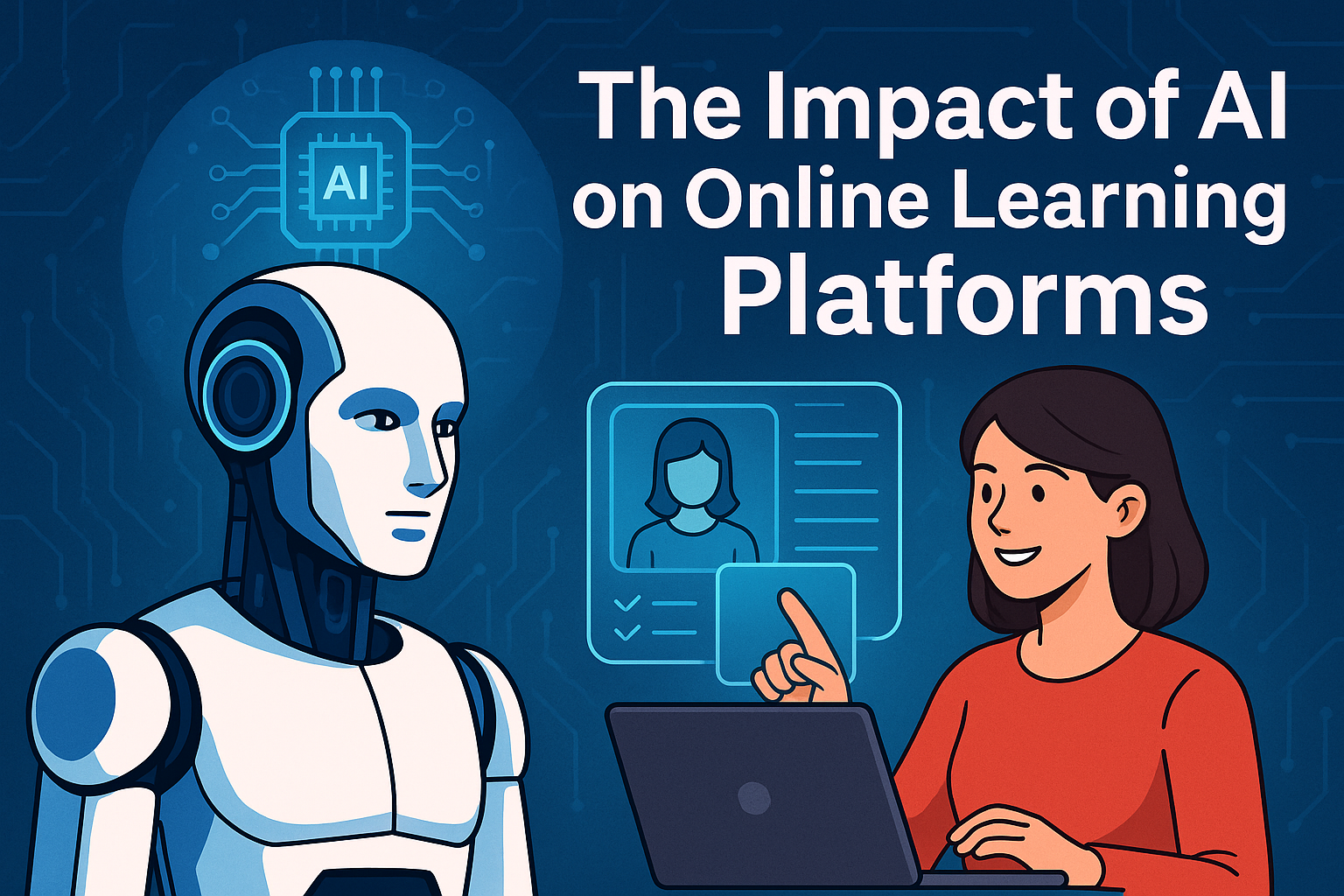Introduction: How AI is Shaping the Future of Online Education
Artificial Intelligence (AI) is transforming the landscape of education, particularly in online learning platforms. By harnessing the power of AI, these platforms are able to offer personalized learning experiences, streamline administrative processes, and increase student engagement. As a result, learners around the globe benefit from more accessible, efficient, and effective education tailored to their individual needs.
Key Ways AI Transforms Online Learning Platforms
Personalized Learning Paths
AI algorithms analyze student data such as learning pace, strengths, and weaknesses to create customized learning paths. This tailored approach helps learners focus on areas they need improvement in, making education more effective and engaging.
Intelligent Tutoring Systems
AI-driven tutoring systems provide real-time guidance and feedback, replicating the experience of having a personal tutor. These systems can answer questions, explain concepts, and offer additional resources to help students grasp complex topics.
Automated Grading and Assessment
With AI, grading assignments and quizzes becomes faster and more objective. Automated assessment tools give instant feedback, allowing students to understand their mistakes and improve quickly while freeing educators from time-consuming grading tasks.
Enhancing Engagement and Interaction through AI
Adaptive Content Delivery
AI systems dynamically adjust the difficulty and style of course materials based on a learner’s performance. This ensures students remain challenged without feeling overwhelmed, keeping motivation and retention high.
Chatbots and Virtual Assistants
AI-powered chatbots provide instant support by answering student questions, guiding them through course materials, and helping with administrative tasks 24/7. This constant availability enhances the learner experience and reduces frustration.
Gamification and AI
Integrating AI with gamification strategies enables platforms to offer personalized challenges, rewards, and progress tracking. This approach increases learner motivation and encourages consistent engagement over time.
Benefits of AI Integration in Online Learning
Increased Accessibility and Inclusivity
AI-powered tools can tailor content to accommodate diverse learners, including those with disabilities or language differences, making education more inclusive and accessible worldwide.
Data-Driven Insights for Educators
AI analytics provide educators with deep insights into student performance and engagement trends, enabling more informed decisions to improve teaching strategies and learner outcomes.
Scalability of Education
AI enables online platforms to effectively serve a large number of students simultaneously, without compromising the quality of instruction, helping education scale to meet growing demand.
Challenges and Ethical Considerations
Data Privacy and Security
With AI systems collecting vast amounts of student data, safeguarding privacy and ensuring compliance with regulations like GDPR is crucial to maintain trust and protect learners.
Bias in AI Algorithms
AI models trained on biased data can unintentionally reinforce inequalities. Continuous monitoring and diverse data sets are needed to ensure fairness and inclusivity in online learning.
Dependence on Technology
While AI enhances education, overreliance on automated systems might reduce human interaction, which is vital for developing critical thinking and social skills. Balancing AI with human support is essential.
The Future of AI in Online Learning Platforms
Integration with Virtual and Augmented Reality
The combination of AI with virtual reality (VR) and augmented reality (AR) will create immersive and interactive learning environments, allowing students to experience hands-on training and simulations remotely.
Lifelong Learning and Skill Development
AI will support personalized lifelong learning journeys, helping professionals continuously update their skills in response to evolving job markets and personal interests.
Collaborative Learning through AI
Future AI systems will facilitate better peer collaboration by connecting students with similar goals and complementary skills, fostering a community-driven learning experience.
Conclusion: Embracing AI to Revolutionize Online Education
Artificial Intelligence is reshaping online learning platforms by offering personalized experiences, improving engagement, and streamlining administrative tasks. While challenges like data privacy and bias remain, the benefits far outweigh them. As AI continues to evolve, it promises to make education more accessible, inclusive, and effective for learners worldwide. Embracing AI in education is not just a technological upgrade—it’s a vital step toward the future of learning.

